Advertisement
How little Franklin, Mass. opened America's first public library

Massachusetts is drenched in history. You can't go much of anywhere in the commonwealth without running into America's first something or other.
But not all firsts are created equal. Some are endowed with better backstories. To wit: the Norfolk County town of Franklin is home to America's first public library.
And who donated the original set of dozens of books that gave the Franklin Public Library its start in 1790? With many of said vintage volumes still preserved in a glass and wood display case in the library, waiting for you to pay a visit?
None other than Benjamin Franklin.
Yes, that Benjamin Franklin. The Boston-born founding father gained fame as a statesman, newspaper guy and public intellectual — and as the inventor of lightning rods, bifocals, the glass armonica and flexible urinary catheters.
But back to the books.
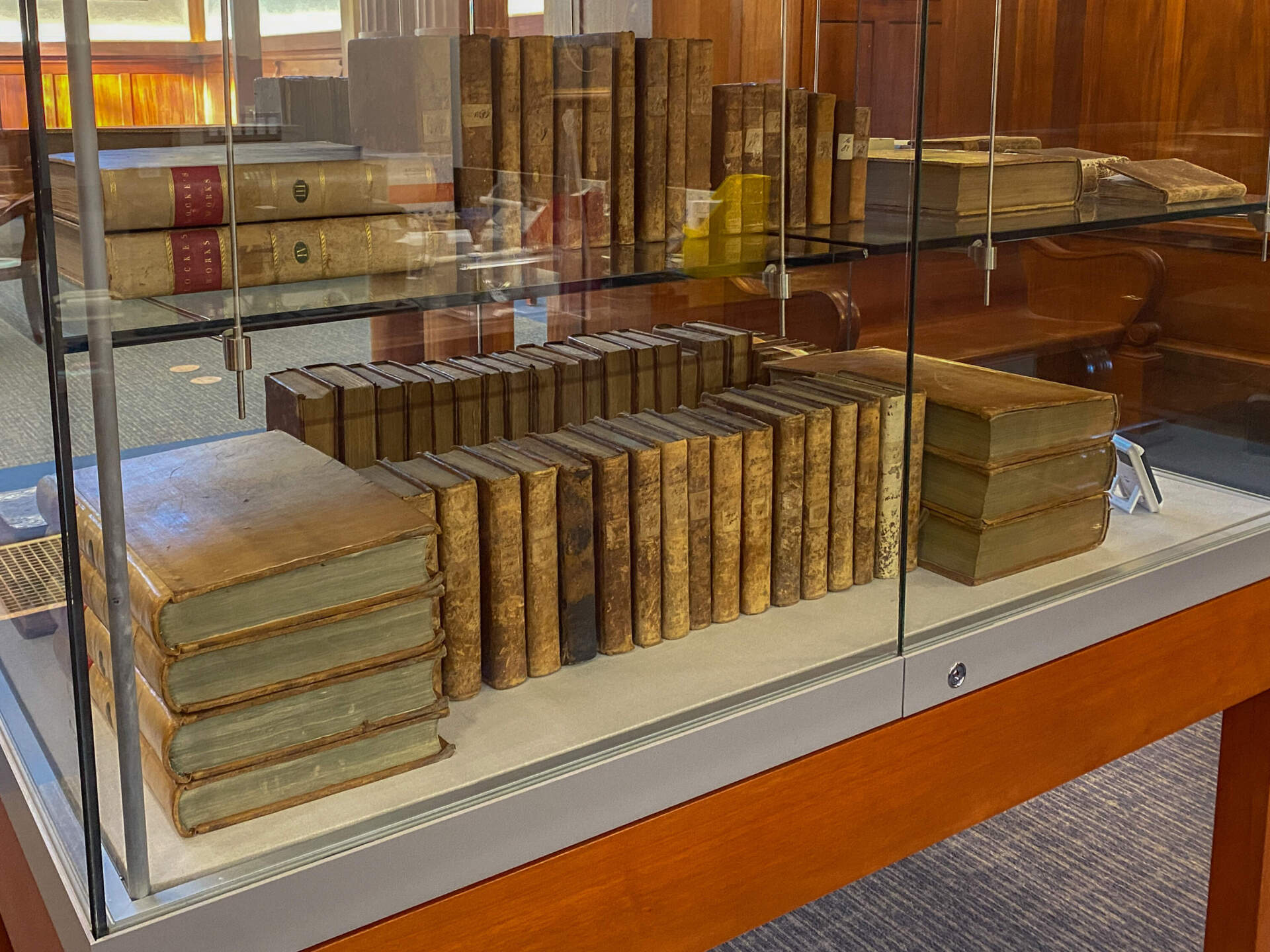
Franklin Public Library reference librarian Vicki Earls conducted loads of research into this literary origin story. The saga began when Benjamin Franklin was in France on a diplomatic mission. At the same time, the town in Massachusetts was preparing to incorporate — with the name of Exeter.
“At some point along the way,” she said, “before the incorporation papers were filed, our town founders heard a rumor that Benjamin Franklin had been assassinated. In kind of an emotional reaction to that, they scratched out the word Exeter on the articles of incorporation and wrote in Franklin over the scratched-out Exeter.”
If you're worried that you had forgotten that Benjamin Franklin was killed while overseas negotiating with the French, never fear. It didn’t happen. The gossip was completely wrong. Earls said the rumors, however, were weirdly specific.
“The British Ambassador to France sent his goons to eliminate Franklin,” Earls said, describing the fact-free tale that made its way to America. “And he was stabbed, but the knife hit a rib, and it wasn't fatal, but he was languishing and dying in his bedchamber. All invented.”
Advertisement
Eventually, the truth emerged. But the town name stuck. Franklin, Massachusetts was incorporated in March of 1778.
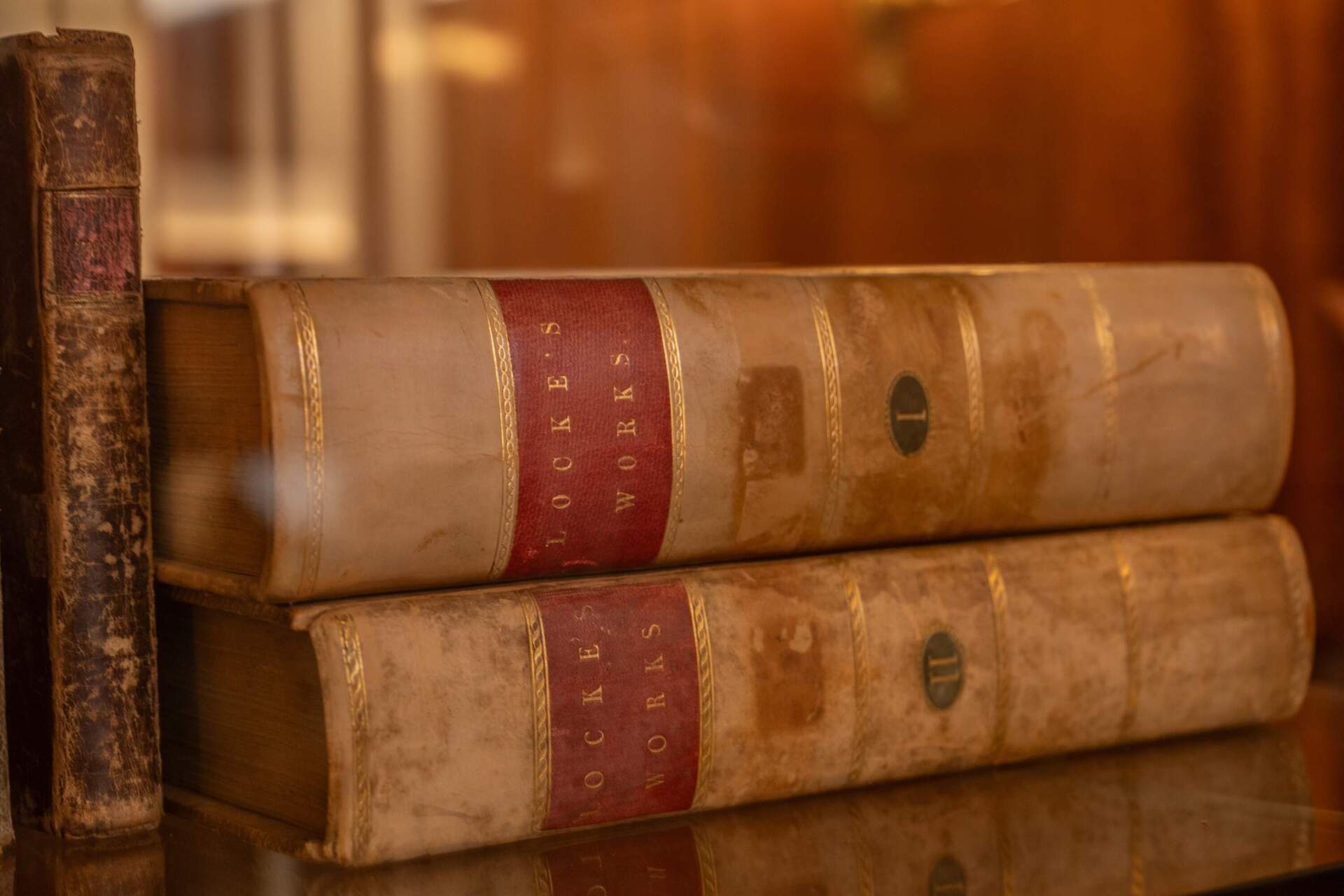
“Six years now passes,” said Earls, “and every town needs a meeting house. That was the law of the land. And they wanted a bell for that meeting house. That was one of the most important things to have, because that's how you call people to meeting.”
As the town of Franklin struggled to come up with a way to achieve this goal, some townsfolk just so happened to bump into the nephew of Benjamin Franklin. Small world, right? And that nephew then wrote to his uncle Benjamin in France, explaining that people in southeastern Massachusetts had thought he was murdered and so they went ahead and named their town after him — and also, it just so happened that these same people needed a bell for their meeting house.
The appeal to honor worked. Benjamin Franklin was flattered and he committed to help.
However, complications ensued. It was wartime, and it turned out providing a bell was not an option. So, being clever, Benjamin Franklin came up with Plan B: Free books.
“Maybe the people of Franklin would appreciate a library collection,” said Earls. “Franklin obviously loved books. So he said, ‘sense being preferable to sound,’ [he] decided to provide the good people of Franklin with a library collection instead of a bell.”
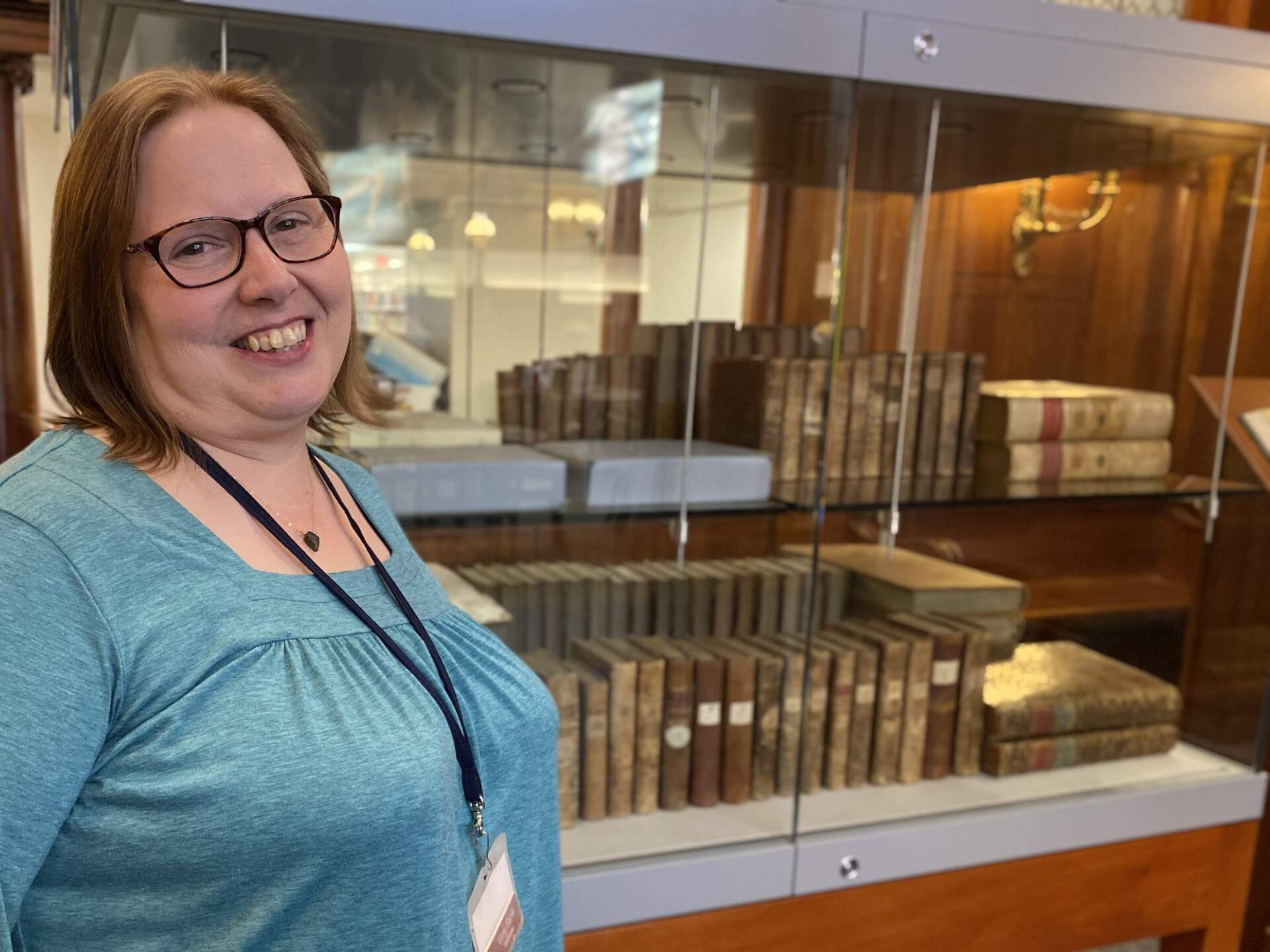
Thus, this historic milestone — the idea of America's first public library — was born. But hmm, what books to include?
Benjamin Franklin turned to a good friend for an assist. He wrote a letter to Richard Price, a Welsh philosopher and a supporter of the American Revolution. Franklin called on Price to help choose the reading material — with some overarching instructions:
“It is to request from you a list of a few good Books, to the Value of about Twenty-five Pounds, such as are the most proper to inculcate principles of sound Religion and just Government.”
Sound religion and just government, Earls stressed, epitomized the ideals of the Enlightenment.
“The books that were given were books by John Locke and Montesquieu — the idea of life, liberty, and the pursuit of happiness” Earls said, “And these were books that the founding fathers were reading to basically create the government. So, what better foundation can you give a new town than, you know, think for yourself?”
Since Earls grew up in Franklin and her family has lived there for generations, she acknowledged that she's especially tickled by another line from the letter that Benjamin Franklin sent to Richard Price:
“ These are therefore intended as the commencement of a little parochial Library, for the Use of a Society of intelligent respectable Farmers, such as our Country People generally consist of.”
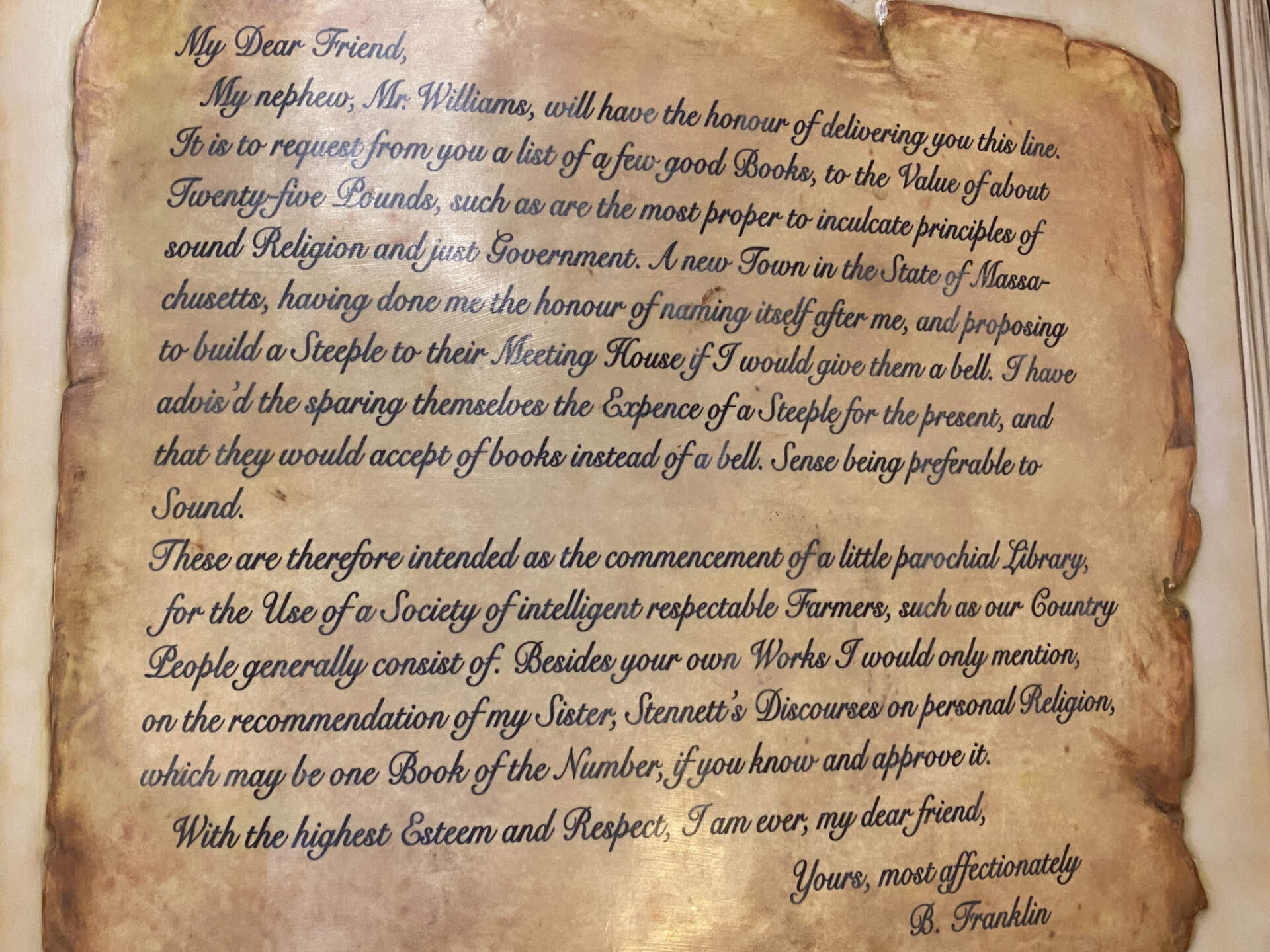
The intelligent, respectable farmers of Franklin did indeed get their little parochial library. Following twists and turns and delays, the library earned its place in American history when it was officially established in 1790.
Even after working at the Franklin Public Library for more than four decades, Earls said she's still in awe of the Franklin Collection.
“ It is very cool,” she said. “I open the case that they are stored in, and I smell them. It's this whole experience. You smell the aged books, and then you touch their smooth leather covers that have worn down because they've been held by thousands of citizens of Franklin before you. It's weird, they're like this little family. I open the case and visit my little family. So, yeah. They're really special. Very special to me.”
Her devotion — not only to Franklin, but to libraries in general — is palpable.
“I can't imagine a world without a public library,” Earls said. “It's the encapsulation of human knowledge. It’s free access to information and free library services. It's how you open minds, grow minds, connect your community, and connect your community to the rest of the world.”
That being said, home turf still looms the largest.
“ I never stop talking about our claim to fame as America's first public library,” she said. “I am so proud of it.”
Every library is important, Earls said. This is not supposed to be a competition, she acknowledged. But she holds another truth to be self-evident: Franklin Public library is the winner.
“You know, all I can say is, free to everyone, and 1790, baby," she said. "Good luck beating that.”
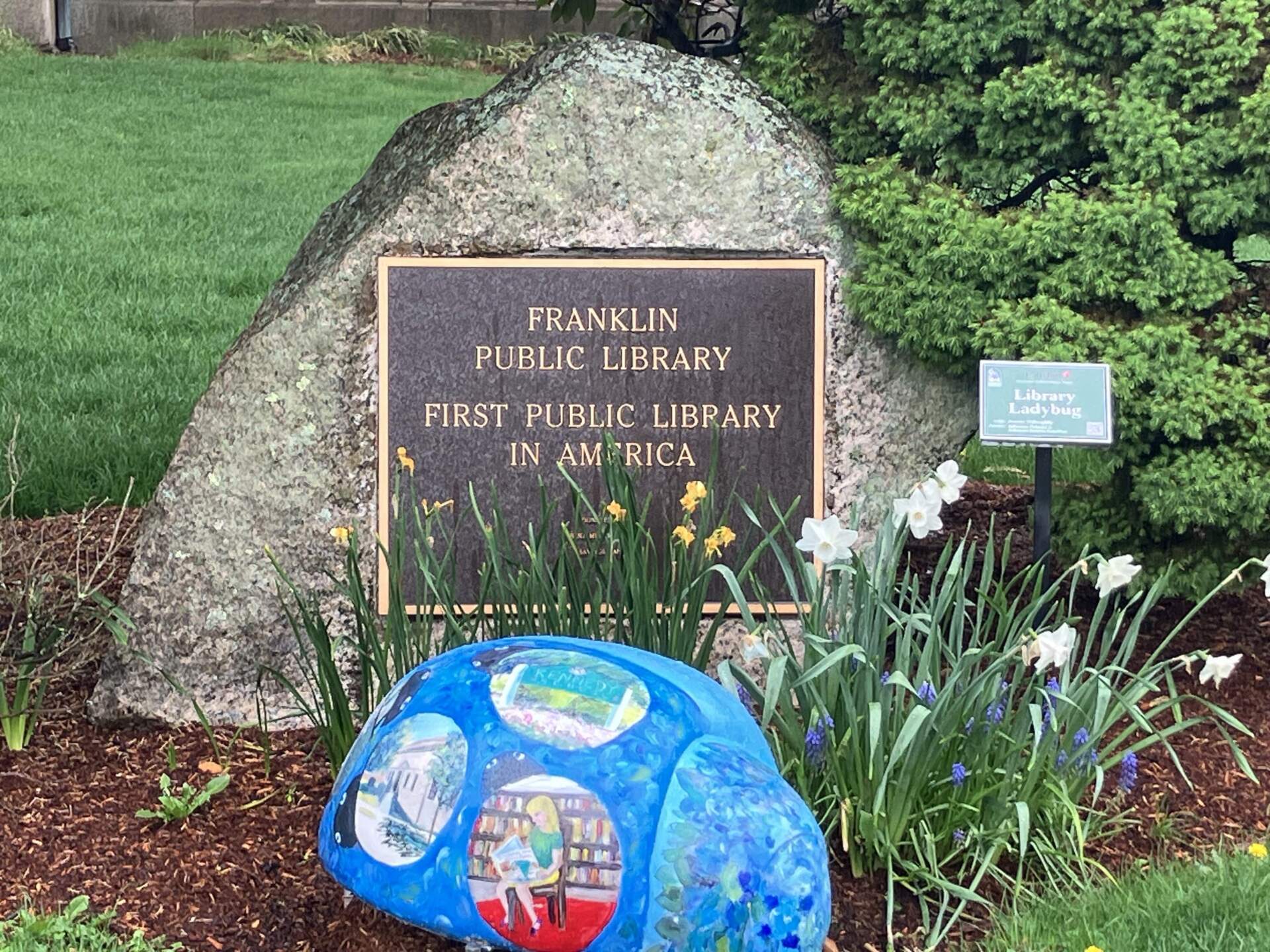
This segment aired on May 10, 2025.
